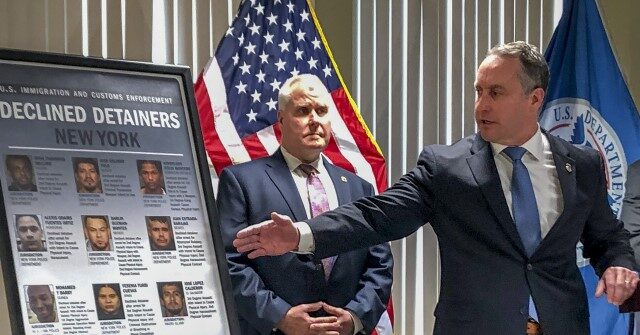Former President Donald Trump recently made a strong pledge regarding immigration and public safety during an all-women town hall in Georgia. In response to a question posed by a concerned mother named Nancy, who highlighted the issue of immigrant crime—especially in liberal cities—Trump asserted his intention to “end all sanctuary cities immediately” if he wins the presidency again. This assertion came after Nancy recounted her distress, noting her son’s close call with crime on his campus, underscoring a sentiment many voters share about safety in their communities. Trump assured his audience that he could eliminate sanctuary cities through an executive order and referenced The Alien Act as part of his strategy for addressing this complex issue.
Elaborating on his plan, Trump condemned the liberal policies promoting sanctuary cities, branding them as shelters for criminals. He challenged the logic behind open-border policies and the motivations of those who support them, suggesting they place law-abiding citizens at risk. Trump framed his approach as a return to “normalcy” and a reinforcement of law and order as he criticized the liberal policies in cities like New York, Chicago, and Los Angeles. He emphasized that these policies contribute to rising crime rates and dismantle public safety measures that should otherwise protect communities.
Additionally, Trump positioned his administration as one that prioritizes law enforcement and their operational freedom. He asserted that under his leadership, police would be empowered to perform their jobs without the constraints imposed by political correctness and current regulations. He expressed admiration for law enforcement officials, describing them as deeply committed to their roles but currently hindered by a system that punishes them for mistakes, however minimal. In Trump’s view, this unjust treatment leads to a erosion of trust and efficacy within police departments.
To further support law enforcement, Trump proposed granting immunity to officers to shield them from lawsuits stemming from their official duties. He believed this would enable police to act decisively in their roles, alleviating fears of personal repercussions from their actions on the job. Trump underscored that police officers have dangerous and challenging jobs, often facing immense scrutiny while doing what they believe is right to protect their communities. Reinforcing this stance, he mentioned the disproportionate media coverage often given to negative incidents, which could further demoralize the forces devoted to public safety.
Trump’s remarks reflect a growing concern among many voters about public safety amidst perceptions of rising crime, especially in cities governed by liberal leaders. His call to end sanctuary cities resonates with the belief that such policies undermine public safety and foster environments where crime can flourish. Trump’s clear, forceful rhetoric appeals to those who prioritize law and order, while simultaneously criticizing the political framework that allows for such sanctuary measures to exist. As he campaigns for reelection, these issues remain central to the agenda he seeks to promote among his supporters.
In summary, Trump’s recent statements in Georgia showcase his firm stance against sanctuary cities and his commitment to law enforcement. By framing the issue in terms of public safety and community protection, he looks to galvanize supporters who share concerns about crime and immigration policies. As he prepares for the 2024 presidential election, his emphasis on these issues highlights a crucial part of his campaign, where he seeks to present himself as the candidate who champions the rights of law-abiding citizens while supporting the police to ensure a safer and more orderly society.

